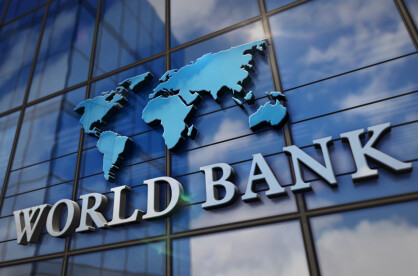Sri Lanka has recently been in headlines for all the wrong reasons – the government's disastrous management of the economy and the fallout from the COVID-19 pandemic, its untimely ban on chemical fertilisers and a 'contaminated' shipment of organic fertilisers from China, the resulting row with China with which it already has a debt-ridden relationship — where the Hambantota Port is now managed by a Chinese state-run company — and the recent bailouts by India.
Then there were the reports of shortages of milk and gas, exploding LPG cylinders, record high inflation and sky-rocketing prices of basic staples, leaving vast proportions of the population in poverty. This was followed by reports that the central bank had instructed banks to convert foreign currency deposits in Sri Lankan banks into rupees, at times without the knowledge of account holders, and announcement of possible power cuts across the country as power suppliers struggled to make the payments to fuel suppliers — given the shortage of foreign currency in the market.
According to the Central Bank of Sri Lanka (CBSL), the COVID-19 pandemic and the resulting lockdowns in the country as well as across the world, led to a contraction of the Sri Lankan economy in 2020 and the early part of 2021. Towards the latter part however, the CBSL says, economic activity 'gathered momentum' and the economy is now expected to have recorded growth of four percent in 2021.
Sri Lanka's woes are mainly in the external sector, with large repayments on loans due in 2022, while its foreign currency reserves are at an all-time low. In January 2022, ratings agency Fitch downgraded Sri Lanka's Foreign Currency Issuer Debt Rating from 'CCC' to 'CC' to reflect 'increasing pressure on the country's foreign-exchange reserves from large external debt redemptions.' It said that Sri Lanka's foreign currency debt repayments for the first quarter of 2022 is about USD3 billion, which is about 188 percent of its reserves. Given limited avenues to add to its reserves, Sri Lanka has increasingly looked at bilateral support and swaps with central banks to meet funding needs — as Fitch projected.
The CBSL has said that it has repaid a USD500 million international sovereign bond due on 18 January. It has a USD1 billion repayment coming up in July. Sri Lanka, during a recent visit by Chinese Foreign Minister Wang Yi, also requested the Chinese government to restructure its debt, to which the Chinese government has responded positively. India, not to be left behind, has also announced the deferment of a USD500 million in cross-border settlements and a USD400 million US dollar currency swap.
One month into 2022, the tourism sector in Sri Lanka appears to be bouncing back, with more than 80,000 arrivals, compared to about 1,600 tourists in January 2021. The CBSL reported 'a notable improvement' in export performance, although expenditure on imports have also increased significantly, reflecting an increase in international fuel prices and higher than expected local demand. The government has also introduced a host of special incentive schemes to encourage an increase in remittances, including the payment of USD8 for worker remittances in addition to the stipulated Rs.2.00 offered per USD on exchange, and reimbursement of transaction costs for workers remitting funds. The government also recently mandated that all registered tourist establishments accept only foreign currency in exchange for services rendered to tourists, through which it hopes to increase the supply of foreign currency to the country. It has also recommended an increase in policy rates, and encouraged local banks to pass the increase to consumers, so as to increase savings and hence mop up liquidity.
Through these measures the Sri Lankan government hopes to ensure macroeconomic stability, although it may be a case of too little too late, in a scenario where the government has grandly botched up and public trust is at an all time low — in recent days if a government official makes any public assurances, the public largely expect the opposite to occur!







